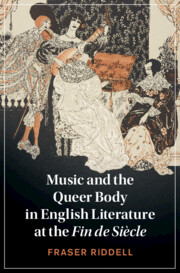Founding Editors
Gillian Beer, University of Cambridge
Catherine Gallagher, University of California, Berkeley
General Editors
Kate Flint, University of Southern California
Clare Pettitt, King’s College London
Editorial Board
Isobel Armstrong, Birkbeck, University of London
Ali Behdad University of California, Los Angeles
Alison Chapman, University of Victoria
Hilary Fraser, Birkbeck, University of London
Josephine McDonagh, University of Chicago
Elizabeth Miller, University of California, Davis
Hillis Miller, University of California, Irvine
Cannon Schmitt, University of Toronto
Sujit Sivasundaram University of Cambridge
Herbert Tucker, University of Virginia
Mark Turner, King’s College London
Nineteenth-century literature and culture have proved a rich field for interdisciplinary studies. Since 1994, books in this series have tracked the intersections and tensions between Victorian literature and the visual arts, politics, gender and sexuality, race, social organization, economic life, technical innovations, scientific thought – in short, culture in its broadest sense. Many of our books are now classics in a field which since the series’s inception has seen powerful engagements with Marxism, feminism, visual studies, post-colonialism, critical race studies, new historicism, new formalism, transnationalism, queer studies, human rights and liberalism, disability studies and global studies. Theoretical challenges and historiographical shifts continue to unsettle scholarship on the nineteenth century in productive ways. New work on the body and the senses, the environment and climate, race and the decolonization of literary studies, biopolitics and materiality, the animal and the human, the local and the global, politics and form, queerness and gender identities, and intersectional theory is re-animating the field. This series aims to accommodate and promote the most interesting work being undertaken on the frontiers of nineteenth-century literary studies, connecting the field with the urgent critical questions that are being asked today. We seek to publish work from a diverse range of authors, and stand for anti-racism and anti-colonialism and against discrimination in all forms.
A complete list of titles published will be found at the end of the book.

